Katherine Mansfield - Learning Literature
advertisement
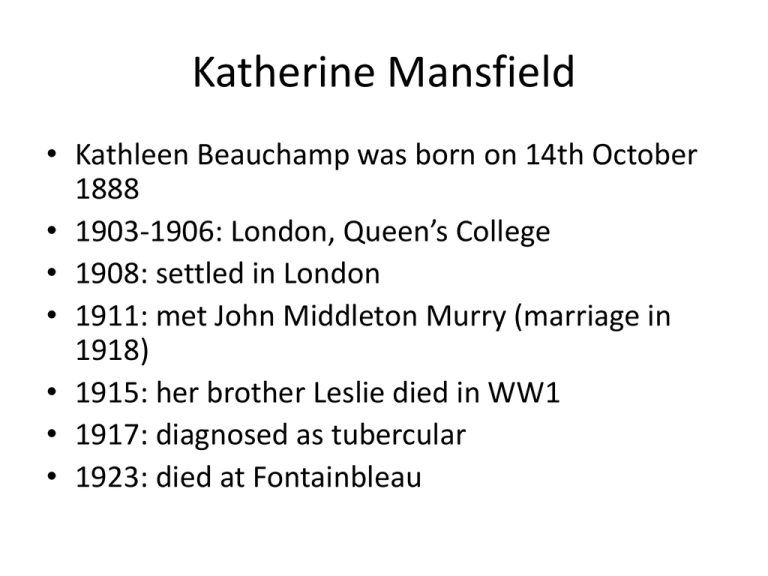
Katherine Mansfield • Kathleen Beauchamp was born on 14th October 1888 • 1903-1906: London, Queen’s College • 1908: settled in London • 1911: met John Middleton Murry (marriage in 1918) • 1915: her brother Leslie died in WW1 • 1917: diagnosed as tubercular • 1923: died at Fontainbleau The modernist short story:key-features • • • • • • • • • • Limitation and foregrounding of the point of view Emphasis on presentation of sensation and inner experience Deletion or transformation of several elements of the traditional plot Rejection of chronological time ordering Spatial form Increasing reliance on metaphor and metonymy in the presentation of the events of existence Formal and stylistic economy Foregrounding of style The short story shares all these characteristics with the modern novel, but they ‘look’ different in the short story precisely because it is physically short The emphasis on subjectivity affects the themes of modern fiction: alienation, isolation, solipsism, the quest for identity Katherine Mansfield WORKS • A German Pension and Other Stories 1911 • Prelude 1918 • Bliss and Other Stories 1920 • The Garden Party and Other Stories 1922 • The Doves’ Nest and Other Stories 1923 • Something Childish and Other Stories 1924 The question of gender • “Our satisfaction recognizes the skill with which the author has handled perfectly the minimum material”, [so that the story is] “what I believe would be called feminine” T.S. Eliot on “Bliss” in After Strange Gods Phases in Katherine Mansfield’s career • 1908 – 1917 • 1917 – 1923: publication of her major stories. Two main events in this phase: • Her engagement with Chechov • Her accepting an invitation by Woolf to write a story for the Hogarth Press Chekhov’s influence • “What the writer does is not so much to solve the question but to put the question. There must be the question put. That seems to me a very nice dividing line between the true and the false writer” Letter to Murry, 27 May 1919 • “Tchechov said over and over again […] that he had no problem […] the artist takes a long look at Life. He says softly ‘So this is what Life is, is it?’ and he proceeds to express that. All the rest he leaves” Letter to Dorothy Brett, 17 Nov. 1921 • With her friend S.S. Koteliansky Mansfield translated some of Chekhov’s correspondence Mansfield - Woolf • “We have got the same job and it is really very curious and thrilling that we should both, quite apart from each other, be after so very nearly the same thing” Letter to V. Woolf • “And I was jealous of her writing – the only writing I have ever been jealous of. This made it harder to write to her; & I saw in it, perhaps from jealousy, all the qualities I disliked in her”, Woolf’s Diary • “I feel a common understanding between us – a queer sense fo being ‘alike’” Letter to KM Prelude “What form is it? you ask. Ah, Brett, it’s so difficult to say. As far as I know, it’s more or less my invention […] I have a perfect passion for the island where I was born. Well, in the early morning there I always remember feeling that this little island has dipped back into the dark blue sea during the night only to rise again at gleam of day […] I tried to catch that moment – with something of its sparkle and its flavour. And just as on those mornings white milky mists rise and uncover some beauty, then smother it again and then again disclose it, I tried to lift that mist from my people and let them be seen and then to hide them again” Letter to Dorothy Brett, 11 Oct. 1917 Prelude • “Then I want to write poetry. I feel always trembling on the brink of poetry. The almond tree, the birds, the little wood where you are, the flowers you do not […]see […] But especially I want to write a kind of long elegy to you … perhaps not in poetry. Nor perhaps in prose. Almost certainly in a kind of special prose.” Journal, 22 January 1916
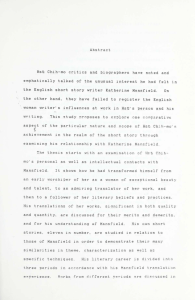

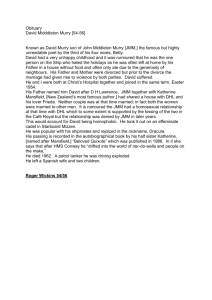

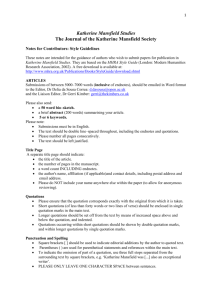
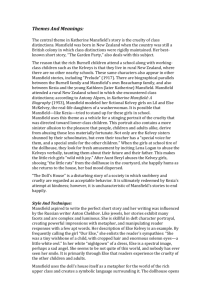
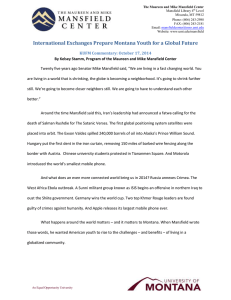
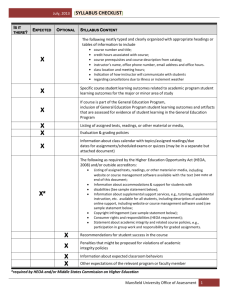
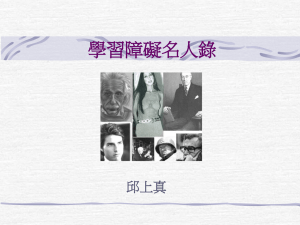
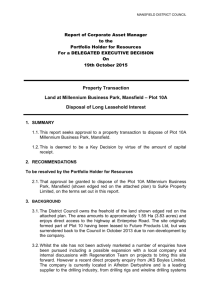
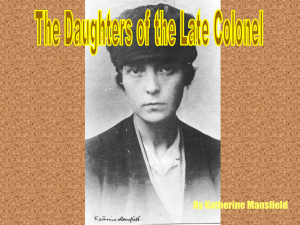
![Special Author: Woolf [DOCX 360.06KB]](http://s3.studylib.net/store/data/006596973_1-e40a8ca5d1b3c6087fa6387124828409-300x300.png)